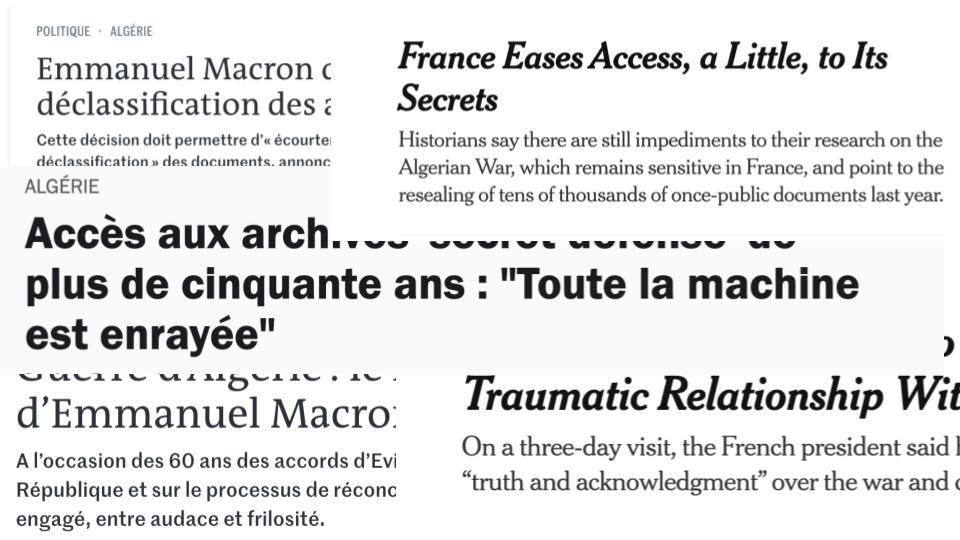This paper investigates archival silence in the Franco-Algerian War archives and argues that while the opening of the archives appears to have done away with the silence that has shrouded the history of the war, France and its political actors have selectively lifted archival silence to privilege certain narratives.
In 2021, French President Emmanuel Macron announced that the French government would make classified archives about the Algerian War accessible fifteen years ahead of schedule, in an effort to improve Franco-Algerian relations. The announcement, which came after decades of requests that the archives be returned to Algeria, seemed to be a good faith effort to address France’s difficult heritage with respect to the Algerian War (1954-1962), particularly the widespread use of torture and “disappearing” of dissidents during the war. The Algerian War has always occupied a contentious place in French history, having been largely left out of history textbooks, and only referred to as a “war” after 1999. By opening the archives ahead of schedule, Macron seemed to commit the French government to healing generational wounds and improving relations with Algeria. The declassification of Algerian archives led to the status of the Algerian War and, as a result, of Algerian immigrants in contemporary France, becoming a major talking point for candidates on the right and on the left during the 2022 presidential election. While the opening of the archives appears to have done away with the archival silence that has shrouded the history of the war, this paper will argue that France and its political actors have selectively lifted archival silence to privilege certain narratives and continue to silence others.
